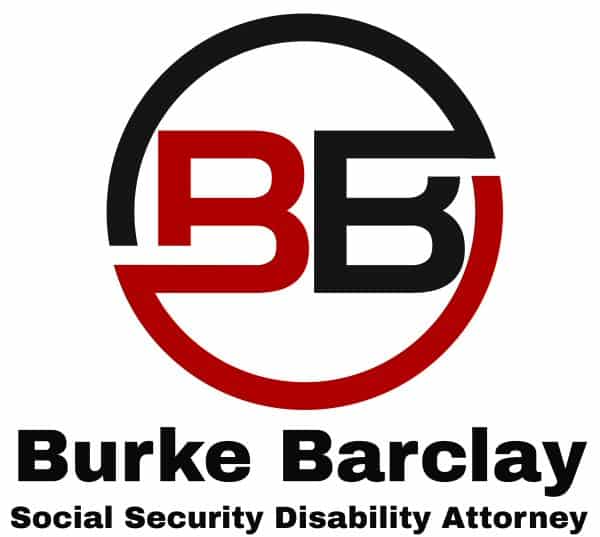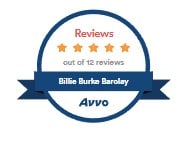Your Social Security Disability Hearing
Understandably, most people who have filed for their Social Security disability and have been denied twice, will have some trepidation about what will occur at their hearing. Since all disability hearings are heard in private, this is not the type of proceeding where you can watch to first see how they take place.
However, there are some things you, as the claimant (and your attorney, if you are represented) can do to better prepare so that your hearing goes more smoothly.
First, make absolutely sure that all of your medical evidence has been submitted and received at least 10 days prior to your hearing so that the Administrative Law Judge can review your claim. At this point, suffice it to say that actually even medical records that discount your claim are supposed to be submitted. If you do have such medical evidence, then either you (or your attorney) needs to explain the discrepancy while at your hearing. If you are represented, then it would be in your best interest for these to have been submitted in a prehearing memorandum to the judge to better define the issues.
What you ultimately want to show through your medical evidence is a continuum of treatment and symptoms which effect your ability to engage in at least basic work activity.
So, let’s say that if you have a solid record of treatment, then what will likely happen at your hearing?
Well, the first thing you have to know is who will actually be there on the day or your hearing.
First, a Social Security disability hearing is not an adversarial proceeding like the court cases you watch on TV. There is no attorney at this stage representing the Social Security Administration stating that you are not disabled and you have the ability to work. There is no cross examination and the rules of evidence are basically nonexistent. The judge is basically looking to see, through your testimony and medical evidence, whether you can actually perform basic work activities or not.
Second, a Social Security disability hearing almost always take place in a small room in one of the many federal buildings located around the country (not a traditional courtroom). The judge is usually elevated in his or her bench and you are seated directly in front. There are always two additional people in the room. One is the judge’s assistant recording the hearing and usually an impartial vocation or medical expert.
However, in almost all Social Security disability hearings, a vocational expert will be asked to testify in order to help the Judge determine whether or not you are capable of performing some other type of work, taking into consideration you age, education, and the work skills you have acquired through your years of working.
Beyond this, the hearings tend to vary depending upon which judge is chosen to hear your case. Some judges allow opening statements and the attorney to present his or her case. Others take over immediately and want to discuss with the claimant a particular aspect of their medical records. After either has happened, then the vocational expert will be called upon to testify as to what he or she believes you are able to do, given your medical evidence and testimony.
Here is where many claimants become very confused. The vocational expert will often testify that you are capable of working at some type of job within the national and local economy and will give the D.O.T. (Dictionary of Occupational Titles) number to the corresponding job. This may be the most critical part of your hearing because if the judge finds that you are capable of working at some other type of listed job, you will be found not disabled.
This is also why it is so important that you question the vocational expert to show that you are not capable of working the types of jobs he or she says you can.
Let’s use an example to help better explain this confusing part of the hearing. Again, depending upon how the judge chooses to conduct the hearing, each case will vary. But, there is some consistency in the given example.
Let’s say that you are a claimant with a severe back injury, The part of the hearing would go something like this:
Judge: “Ms. ________, as the vocational expert, after reviewing the medical evidence and hearing the claimant’s testimony, are you able to testify as to what jobs the claimant may be able to perform?”
Vocational Expert: “I have, Your Honor.”
Judge: “Let’s take a hypothetical person with a severe herniated disc that is capable of walking and standing for two hours per day and is capable of sitting for a combined total of six hours per day. -Would there be a sufficient number of jobs within the national or local economy this person could perform?”
Vocational Expert: “There would, Your Honor. I find that this hypothetical person could be a Dowel Inspector. Code 669.687-014, with a sedentary strength requirement…”
OK, so right now your more than likely really confused. First, you had no idea there were actually jobs such as a Dowel Inspector in the United States. Second, you have no idea what consists of a sedentary strength requirement. At this point, if you cannot come up with a reason as to why you cannot be a Dowel Inspector, then the judge may determine that you are capable of performing a sit down type of job instead of receiving your Social Security disability benefits. So, how do you overcome this problem?
Judge: “Mr./Ms. ___________, do you have any questions for the vocational expert?”
The judge is now asking you to actually cross examine the vocational expert to show that you, as the hypothetical person, are incapable of being a Dowel Inspector or any other type of job. -And you thought you were just going to be able to go into your hearing and tell the judge your tale of woe and he or she would immediately award you benefits after hearing your testimony?! How wrong you are! This is a very complicated part of the hearing and the disability determination process, but try and follow along as best you can.
Here is where you will have to use your medical evidence to contradict the vocational expert’s testimony that you are capable of performing a job such as a Dowel Inspector. You will use your medical evidence as a basis to show what further limitations you have. It would go something like is…
You: “Madam, let’s take the same characteristics as the same hypothetical person the Judge just gave you. But now, let’s say that same hypothetical person had to alternate between sitting and standing throughout the day. -Could this person perform the same job or other jobs within the national or local economy?”
You see, you have now added another restriction to this same hypothetical person (which, again, is really just you). You were able to use common sense and your medical history to show that you (or this hypothetical person) would have to alternate between sitting and standing throughout the day due to your severe back pain.
And, so what if the vocational expert comes back with another job? What if the vocational expert tells the judge that this hypothetical person could be a Silver Wrapper? -What then? -Yes, this is a go-to job the Social Security Administration uses to show that you would be capable of still working even though you have a severe medical condition.
Well, go back to your medical records (you will know your own symptoms at this point) and add yet another restriction. It would go something like this:
You: “Madam. Let’s again use the same hypothetical person, but now would there be any jobs within the economy if this person had to lie down periodically throughout the day to relieve his or her back pain? And, such breaks would be unscheduled and were likely to last twenty minutes or more.”
Vocational Expert: “There would be no jobs within the national economy.”
Yes! You were successful in getting the vocational expert to state that there would be no jobs within the national or local economy in which you, as the hypothetical person, could perform, given your severe restrictions as shown through your medical records.
Does this make sense? First, this shows why it is so important that your medical records are up to date and adequate to support such a question. If your medical records show that you have two herniated discs, it helps when you state that this hypothetical person would have to lie down at various times throughout the day in order to relieve his or her back pain. Also, if you took you Function Report very serious, then you also showed through your restrictions in daily activities that you also had to lie down throughout the day to relieve your back pain.
The judge may then feel comfortable ruling in your favor that you are actually disabled and are unable to work.
You Need an Experienced Social Security Disability Lawyer
We represent claimants fighting for their Social Security disability benefits throughout Texas and California. Contact the Law Office of Burke Barclay for a highly experienced Social Security Disability Lawyer in Dallas, Texas
"Experienced Social Security Disability Lawyer representing clients throughout the United States who either need to initially file for their Social Security disability benefits or have been denied at one of the various stages throughout the process to give them the best chances of success."
Business Address
The Law Office of Burke Barclay
3838 Oak Lawn Ave.
Suite 1000
Dallas, TX 75219
Business Hours
Monday - Friday
8:00 AM - 5:00 PM





